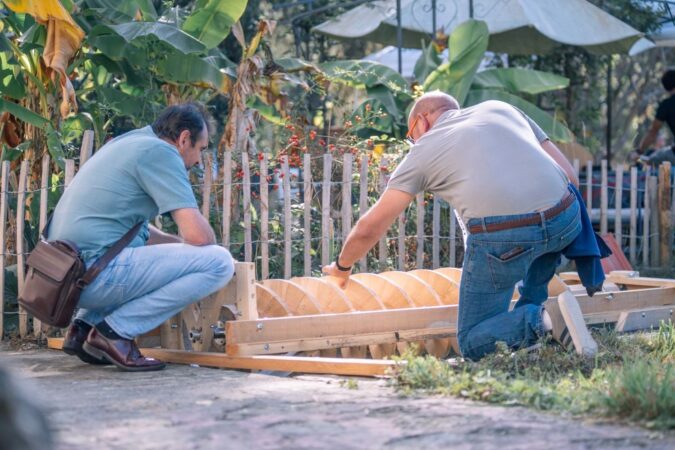The renewable energy landscape is witnessing a rapid transformation, with a gradual transition from fossil fuel-based sources to clean and sustainable energies. In addition to new wind and solar farms that are boosting energy production to record levels, more modest but no less important initiatives are gaining increasing importance. These initiatives are the result of the hard work of small companies or individual inventors, committed to contributing to the fight against climate change.
A notable example is the French non-profit association Vizeta, which has been developing an innovative solution for small-scale hydropower for several years. The focus is on restoring ancient water mills that still exist throughout France, through innovative wooden hydroelectric turbines. This turbine not only efficiently exploits hydropower, but also has unique advantages over traditional hydroelectric turbines.
According to information released by Viseta, its wooden hydroelectric turbines have the capacity to produce between 4 and 10 kilowatts of electrical energy. Moreover, the association emphasizes that its turbines are a low-cost solution compared to large hydropower plants. While constructing and maintaining large hydroelectric infrastructure requires significant investments, Viseta's wood turbines can be built on site using local materials and simple manufacturing methods. This not only reduces installation costs, but also creates opportunities for employment and local development, they point out to El Español.
According to Vezeeta's calculations, the cost of building a 10-kilowatt “full hydropower plant” is much lower than the cost of large conventional hydropower plants. The estimated price of a Vezeta wood turbine ranges between $3,000 and $4,000, depending on the model and production capacity. In addition, wood turbines provide a viable alternative for rural and remote communities, which often have limited access to traditional energy sources.
Another advantage of Viseta wood turbines is their ability to adapt to different conditions and locations. While large hydropower plants rely on large water reservoirs and complex infrastructure, wooden turbines can be installed on smaller rivers, making efficient use of existing water flows. This allows rural communities and remote areas to access clean, renewable energy, reducing their dependence on unsustainable energy sources.

“Wannabe internet buff. Future teen idol. Hardcore zombie guru. Gamer. Avid creator. Entrepreneur. Bacon ninja.”

